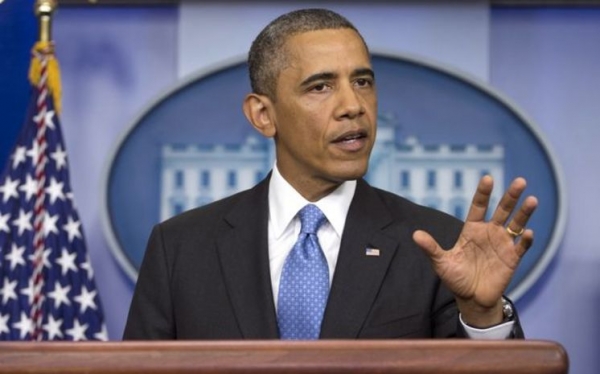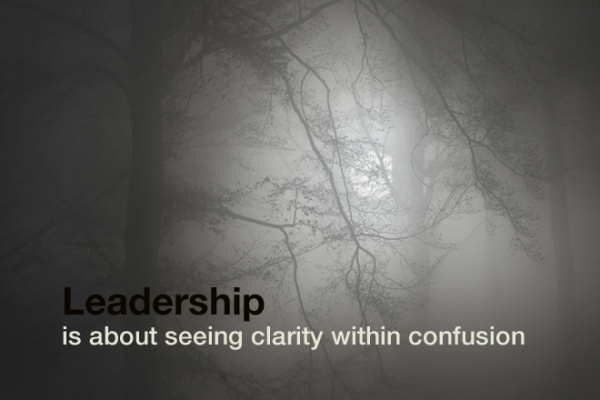MALIA GROUP MAGAZINE’S INTERVIEW WITH MICHAEL KOULY

LEADING THE PACK:
WHAT IT TAKES TO LEAD IN THE 21ST CENTURY
Are leaders made or are they born? What makes a truly inspiring manager, executive, CEO or politician? What is needed to create a healthy work environment? As President and Founder of the Beirut-based and world-renowned Cambridge Institute for Global Leadership, Michael Kouly is singularly well-placed to address the issues at the heart of leadership. Some of his answers may even surprise you.
How would you describe leadership?
“Leader” and “Leadership” have become “buzz” words. The overuse of this term and its heavy commercialization is distorting the core meaning of leadership and is misleading people. The word “leader” is often confused with “authority”, “power” and “having followers”, and from this perspective, not everyone may exercise leadership unless they have authority, power, and so on. I do not agree with this school of thought. Leadership is not a topdown phenomenon and is not limited to some people. It is an act, an intervention that mobilizes people and organizations to make them face their hardest challenges, capture opportunities and contribute to creating a dignified life. In this sense, everyone can and should exercise leadership if we are to hope for a better future.
Then what does it take to be a leader or to put it in your terms “exercise leadership”?
True leadership is not about titles, positions, power, knowledge, charisma, persuasion or having people blindly following you: what is the point of having followers if you are heading in the wrong direction? This is not to say that these traits are bad, but they are not the essence of leadership. People like Mother Theresa, Martin Luther King, Gandhi and so many others did not stand out by the number of people following them, nor by their knowledge, power, title or expertise. If they managed to exercise leadership and make life better it is because cared enough to face head-on the challenges that made their communities stuck and inspired those around them to join their efforts. Their main driver was the sense of purpose that motivated them, courage that helped them overcome their fears and wisdom that made them think and choose properly.
This challenges the concept that some are born leaders. Do you believe that anyone can develop leadership skills along the way?
Assuming that leadership traits are limited to an elite group or acquired by birth is a dangerous proposition. I agree that not everyone demonstrates qualities of dominance and power that our current society favors and considers as leadership prerequisites. But I am confident that every conscious individual is capable of exercising leadership in his life and the lives of people around him provided that he has care in his heart and a clear purpose in his mind. Developing one’s personal skills along the way certainly helps.
How do you differentiate good leadership from bad leadership? And how does it affect the overall work environment?
People, groups and organizations cannot survive and prosper without true leadership. Similarly, genuine progress in the work environment and in communities cannot be created and difficult challenges cannot be faced without the exercise of good and real leadership. Good leadership requires two things:
1) an honorable life-enhancing purpose which ensures that actions are not selfserving but geared towards the well-being of the entire system.
2) strategically and tactically smart leadership interventions and processes that would successfully mobilize people and organizations towards the set purpose.
Needless to say that the most admirable purpose and the most worthy intentions will fail to create progress without intelligent mobilization techniques that are based on a deep understanding of people as individuals, groups, organizations, communities and nations. Similarly, practices that use the greatest techniques to serve a bad purpose will only result in manipulation and destruction.
Can a person be successful without violating laws, including the laws of morality?
People often fall into the trap that the end justifies the mean, however all people, organizations and forms of life are connected in some form. The impact of our actions and choices travels far beyond our estimates, and what we do, or don’t do, matters a lot. The only way to survive and prosper sustainably is to contribute to the survival and prosperity of others and the environments that hold and sustain us. Taking the road less traveled may not be easy, but it is the only solution for our future generations.
What leadership challenges are faced by businesses ?
Every business is finding its own way of surviving and adapting, some more successfully than others. The challenges are different at some level, but they are the same in many other aspects. I believe the main issue is that most businesses are not clear on their purpose and the relevant strategies and are reactively competing instead of focusing on creating a unique value that would serve their communities and help their customers have a better life. The main driver of successful businesses is the sense of purpose that motivates them. The second equally important element is being adaptive enough in their strategies to deal with their challenges at the core level, instead of just treating the symptoms. Financial profit is of course vital but it can only be guaranteed if businesses provide value to the market.
In a family business, how does leadership differ to other business models?
In addition to the regular challenges that non-family businesses face, family businesses strive to find the right balance between the rational corporate sphere and the highly emotional family dimension. This is not an easy task and requires a major deal of awareness and maturity, as well as a solid sense of purpose that will allow family businesses to draw the line between what is good for the business and what should stay at home. That’s why most family businesses find it challenging to sustain themselves beyond the third or fourth generation.
Is leading a country the same as leading a business?
Leadership is a serious undertaking, whether applied at the country or business level. The principles are the same in both spheres, since both are about mobilizing systems, whether employees or citizens, and providing them with their needs. However, it is clear that the challenges of leading a country are far more complex. Businesses usually address limited segments of the market as compared to a country, which is expected to serve an entire spectrum of needs to a much larger and more diverse community. Leadership at the country level is also influenced by various historical, political, ethnic, religious, geographical and cultural forces that businesses are not necessarily bound to.
What has been your own path?
Throughout my life, I had the chance to interact with thought-leaders and scholars from the top universities, particularly at Harvard and Princeton universities. My 20-years international career with top global organizations as well as my advisory services to the boards of several organizations helped me put my academic and practical knowledge in the service of others. I have learned from my successes but much more from my failures and the many people who enriched my life with their wisdom. This passion to share the experience and knowledge that I was given with others is a personal purpose that I dedicated my life to fulfill. In the process, I continue to learn a lot from the people I interact with and grow as a person.
How do your training sessions differ from the trainings of other business coaches?
I do not believe leadership could be taught by conventional training and lecturing. Learning how to exercise better leadership requires well designed first-hand programs that help people experience situations that mimic real life. This is why we call our programs Leadership Simulations. They are personalized high-impact learning programs engineered to individually connect with every participant. The models are inspired by the way leadership is taught at Harvard University where I was educated and served as a teaching fellow. The most common feedback we get from participants is that our leadership simulation is life-changing, eyeopenning and a turning point in their level of awareness.
Who are your top three leadership heroes and why?
Human life has sustained itself so far because over the centuries so many people are exercising acts of leadership obviously or quietly. Discreet acts of leadership are equally important to the acts that are publicized and get media attention. I consider every gesture of courage, care, sacrifice and love an act of heroism.




